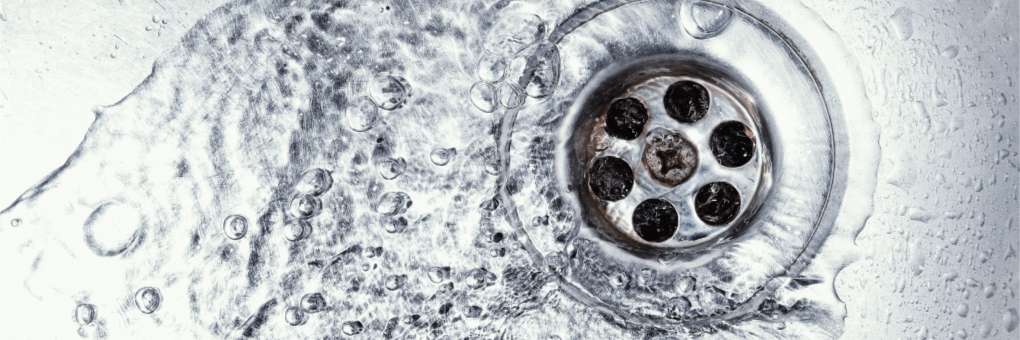
As a homeowner, you already know that soap scum is a constant battle. No matter how vigilant you are, that unsightly white residue tends to build up quickly in your shower and sink drains. And beyond just not looking all that great, it can eventually lead to clogs and the need for professional drain cleaning.
But what exactly is soap scum, and how can you prevent it from forming in the first place?
What is Soap Scum?
Let’s start with the basics.
Soap scum is a white, filmy substance that forms when soap and minerals in hard water come into contact with each other. It’s primarily composed of the fatty acids you find in soap, plus the calcium and magnesium ions you find in hard water. When these substances mix, they create an insoluble compound that adheres to surfaces like shower stalls and sink drains, making them appear dirty.
In short, it’s a grimy cocktail, and every time you shower or wash your hands you’re supplying all the ingredients needed to make a fresh round.
How to Remove Soap Scum
If you’ve already got soap scum buildup in your bathroom, here are some steps to help you remove it:
- Mix a cup of baking soda with enough water to create a thick paste.
- Apply the paste to the affected areas and let it sit for 15-20 minutes.
- Scrub the surfaces with a stiff brush or a sponge, then rinse with hot water.
- For stubborn soap scum, you may need to repeat the process or use a commercial cleaner.
How to Prevent Soap Scum
That’s the reactive approach, but how about a more proactive stance? To prevent soap scum from forming in the first place and to keep your drains clean, follow these tips:
- Install a water softener: Since soap scum forms when soap comes into contact with the minerals in hard water, installing a water softener can help prevent its formation by reducing the calcium and magnesium ions in your water supply. If you have a major soap scum issue, this might be a good route to try.
- Use liquid soap or gel: Unlike bar soap, liquid soap and shower gels contain fewer fatty acids, thus cutting down on soap scum formation. Makes sense, right? Give it less of the ingredients it needs.
- Rinse surfaces regularly: Soap scum doesn’t happen instantly. After each use of the shower or sink, give the surface a quick rinse with hot water to wash away soap residue.
- Regular cleaning: A weekly cleaning routine goes a long way. Maybe this is just the motivation you’ve been looking for?
- Use a drain protector: Installing a drain protector can help catch hair, soap residue, and other debris before they slip down the drain.
If you’re still running into issues or can’t get ahead of it, don’t hesitate to contact a reputable drain cleaning service to help keep your plumbing in top shape. And if you live here in Southern New Jersey, contact us at Accurate Plumbing! We’d love to answer your questions and help you find just the right solution.
Frequently Asked Questions
Q: What is the difference between soap scum and hard water stains?
A: While both are caused by the interaction of soap with minerals in hard water, they are slightly different. As we mentioned above, soap scum is a white, slimy substance mostly made up of fatty acids from soap plus calcium and magnesium ions from hard water. Hard water stains, on the other hand, are caused by the accumulation of minerals, like calcium and magnesium, on surfaces. And rather than being slimy, hard water stains tend to look like white, chalky deposits.
Q: Can soap scum damage my plumbing?
A: Yes! We hate to be the bearer of bad news, but over time soap scum can accumulate in your plumbing, leading to clogged drains and reduced water flow. This buildup can also create an environment for bacteria to grow, making a stinky situation… literally. Regular cleaning is key.
Q: What are some natural alternatives to commercial cleaners for removing soap scum?
A: You can try a mixture of baking soda and water, vinegar, or even lemon juice. These substances help break down soap scum and make it easier to remove. When using vinegar or lemon juice, keep in mind that it’s essential to dilute them with water since their acidity might damage certain surfaces.
Q: How often should I clean my shower and sink to prevent soap scum buildup?
A: To prevent soap scum buildup and keep your drains clean, it’s recommended to clean your shower and sink at least once a week.
Q: Is it safe to use chemical drain cleaners to remove soap scum and unclog my drains?
A: Chemical drain cleaners can definitely be effective in removing soap scum and unclogging drains. Just keep in mind that frequent use can also be harmful to your plumbing, damaging your pipes and creating hazardous waste. It’s better to opt for more eco-friendly and plumbing-safe alternatives, like the baking soda and vinegar trick, or to contact a professional drain cleaning service for assistance.
